blog
Book Review: Golden Apple of the Sun by Teju Cole
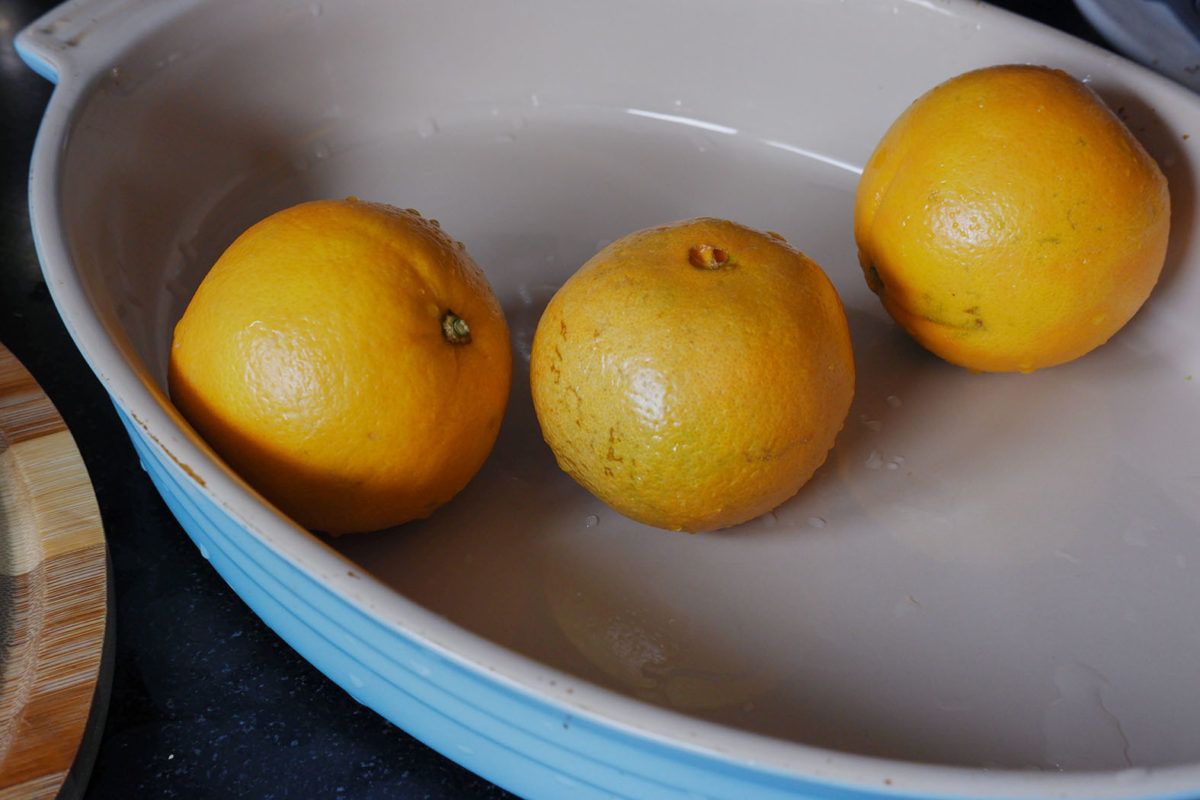
NOV 1 11:24 © Teju Cole
Golden Apple of the Sun by Teju Cole is a visual exploration of the artist’s personal and cultural identity, as well as a reflection on the relationship between photography and memory. Along with his photographs is an essay, which addresses hunger, fasting, mourning, slavery, intimacy, painting, poetry and the history of photography.
I admit that I had a hard time connecting with Cole’s earlier book Blind Spot. I gave it a go soon after it was published, and returned to it over a year later to see if the ideas just needed to simmer a bit longer for me to connect to the work. I didn’t want to characterize Cole’s work as being banal, or too academic without assessing my own approach to the work. Surely, I thought, I must be missing something ‘important’. In hindsight, I know it was probably more about that time, that book, or an aspect about myself that created my own ‘blind spot’ to the work. Happily, I found my connection through Golden Apple of the Sun.
The photographs in Golden Apple of the Sun evoke a sense of nostalgia and longing for me. One of the most striking aspects of the book is the way Cole uses the medium of photography to explore the complexities of memory. Cole uses a muted color palette especially to create a dreamlike quality, evoking memories of the past and of places that no longer exist. His photos paired with ephemera pages of recipes adds an additional layer of meaning and context to his photographs, and highlights the ways in which photography can be used to capture and preserve memories.
There is scant food visible in the collection of images. A stray lemon wedge, lime halves, sliced apple and onion, or remnants of a stirred soup or sauce on a spoon laid aside. These are still-lives in the form of autobiography. Several groups of pages paced throughout the book are printed full-bleed with calligraphy-style hand-written recipes interspersed with his close-ups of kitchen utensils, measuring cups, teaspoons, and empty plates. (It turns out that the recipes are from an anonymous handwritten eighteenth century cookbook from Cambridge.) Ephemera amidst empty vessels – but all share a sense of longing and loss. His images are often quiet and contemplative, yet they convey a sense of depth and richness that belies their simplicity. The missing food reminds me of the art trope of the ‘empty chair’. It begs the questions: who is missing? Is the empty seat waiting for someone, or is someone gone? And why?
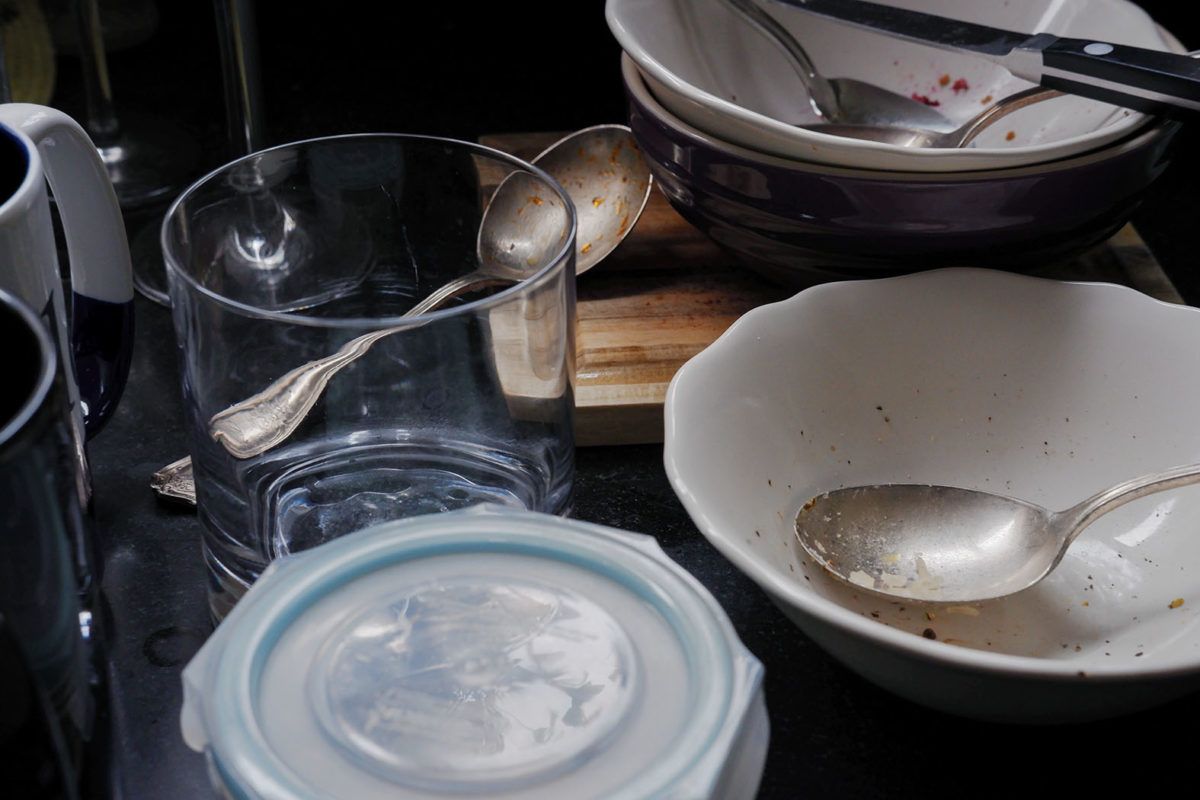
OCT 2 14:01 © Teju Cole
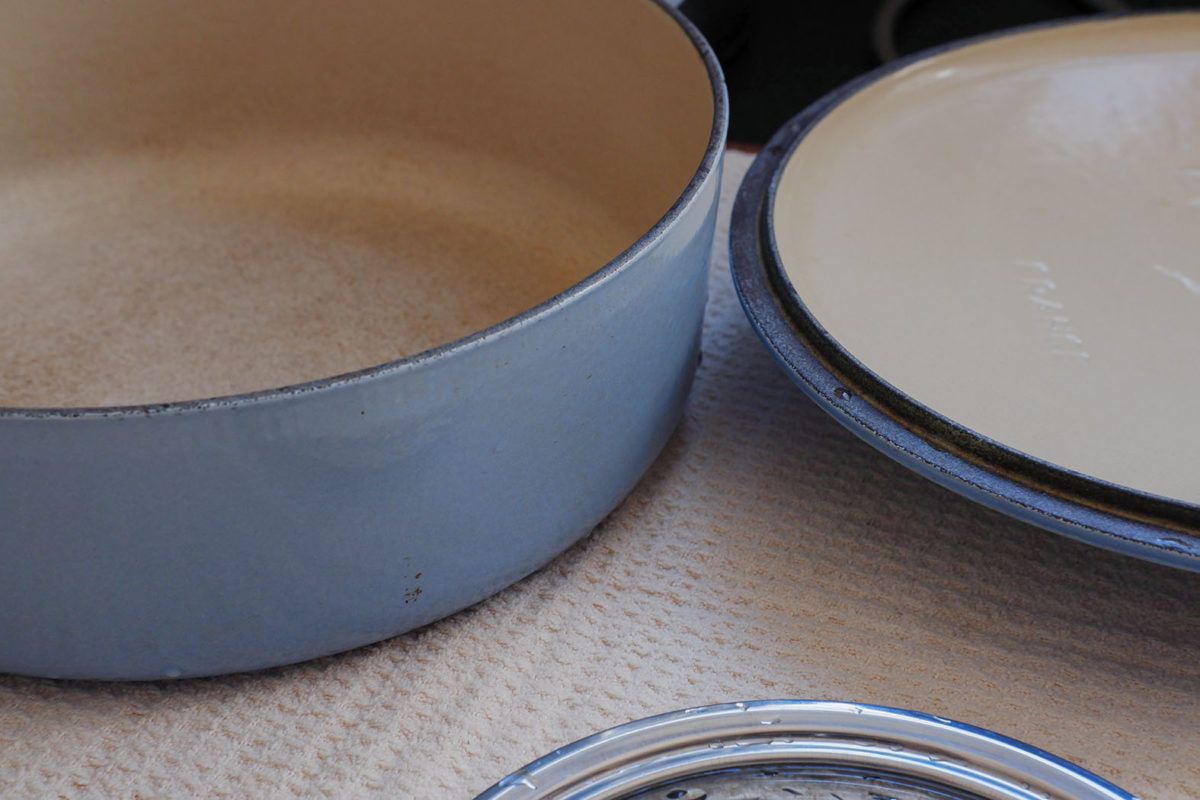
OCT 11 12:30 © Teju Cole
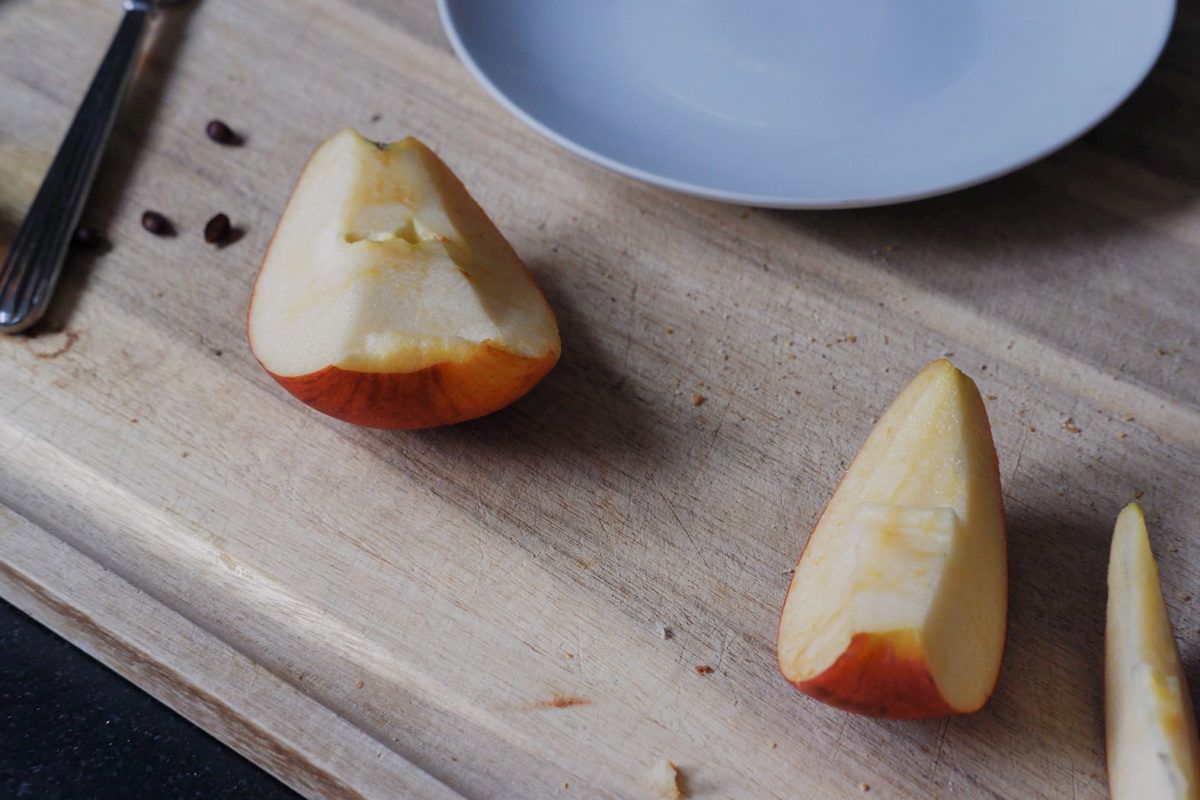
OCT 21 10:44 © Teju Cole
Cole’s essay in the back of the book is where we find the food. His descriptions of eating and food and the inter-tangled history of slavery and painting and photography are poetic and powerful. For some, his text is an acquired taste (with Cole, text is integral to his oeuvre). Cole’s background as a historian is folded into his personal reflections throughout his essay. His stream-of-consciousness style is infused with a brief foray into 16th century still life paintings, or salt harvesting in the Caribbean in the 19th century, or the Zen-like creative process of composer John Cage. I always consider the choices the artist and the designer makes when deciding how to pace images in a book, and how to treat text. The essay is typeset in a manner which leads the reader from the first sentence to the last with no paragraphs, no indents, no gasps for breath. We are on the ride that is Cole’s dialog with us; one idea seeping into the next, a steady stream of words and ideas. But isn’t this how we experience life? One thing we are experiencing cross-fades into the next – like the soundtrack of life.
Teju Cole’s Golden Apple of the Sun is a powerful blend of artistry and storytelling. I found it thought-provoking, visually understated through his simplicity of suggestion, and it offers a unique perspective on Cole’s life experiences.
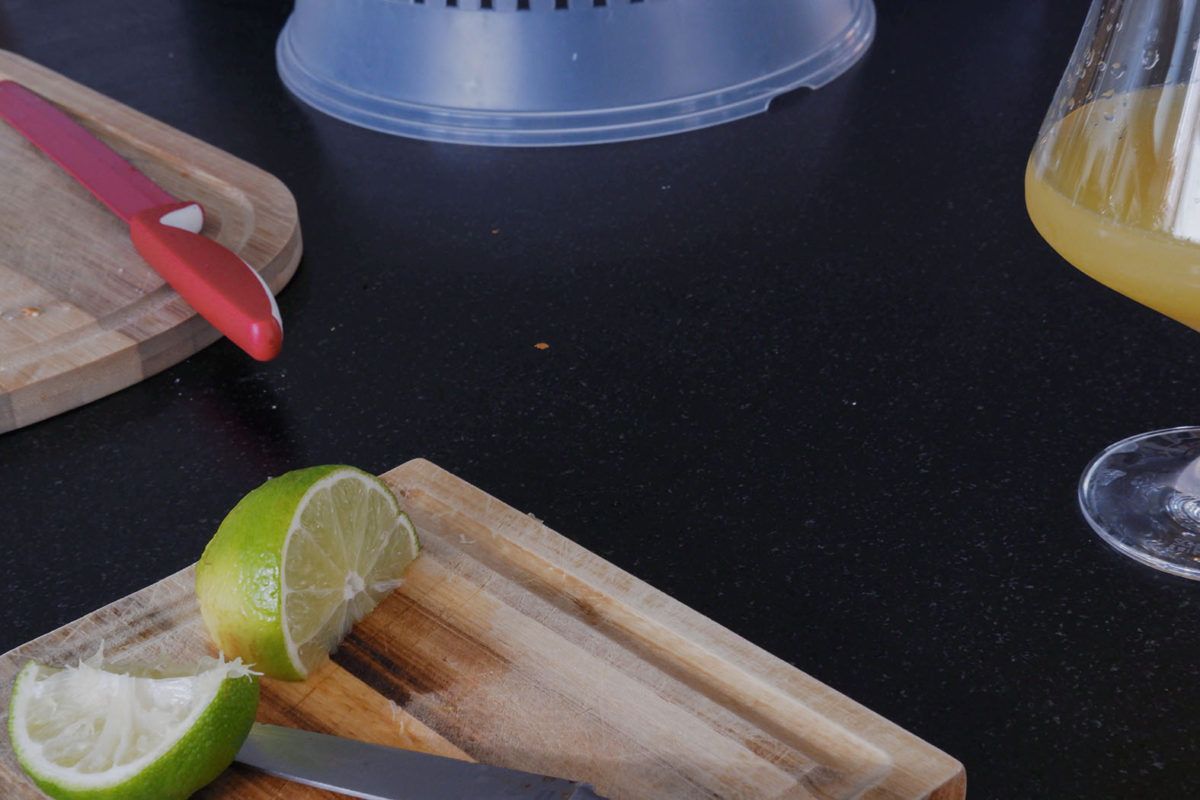
OCT 10 16:39 © Teju Cole
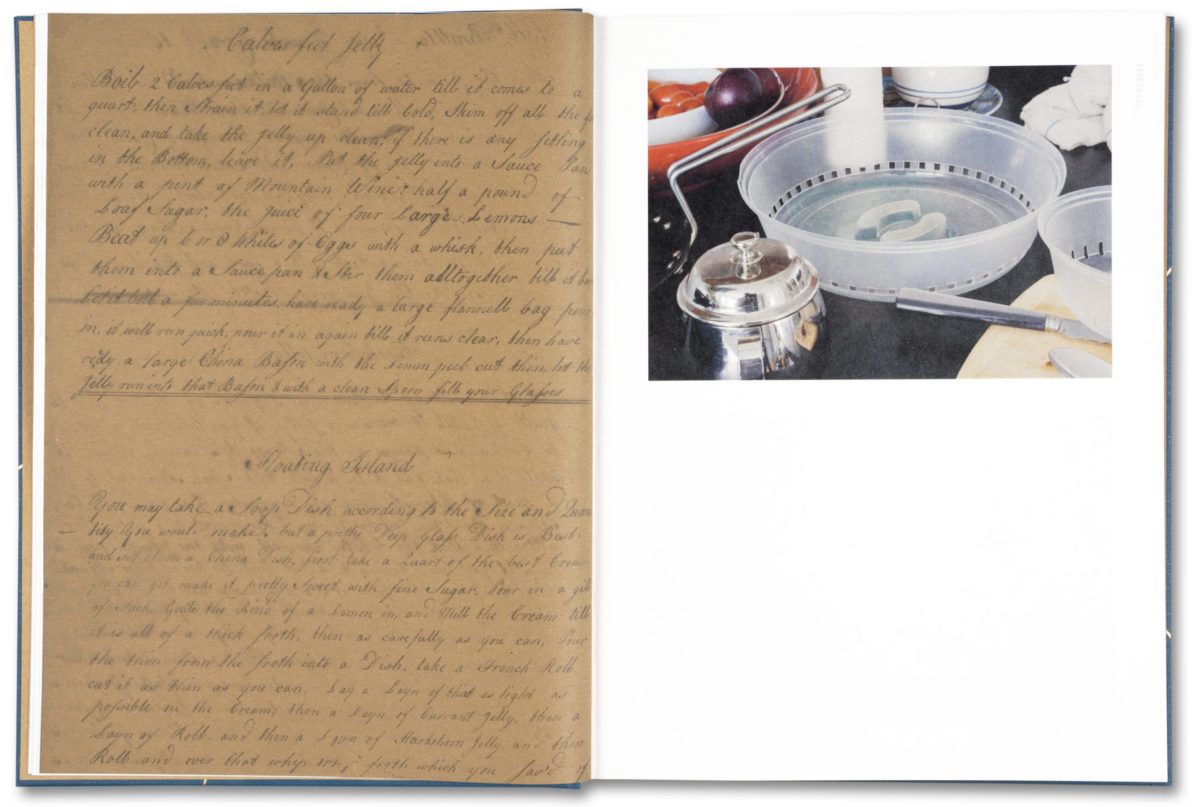
Book spread ‘Golden Apple of the Sun’ © Teju Cole
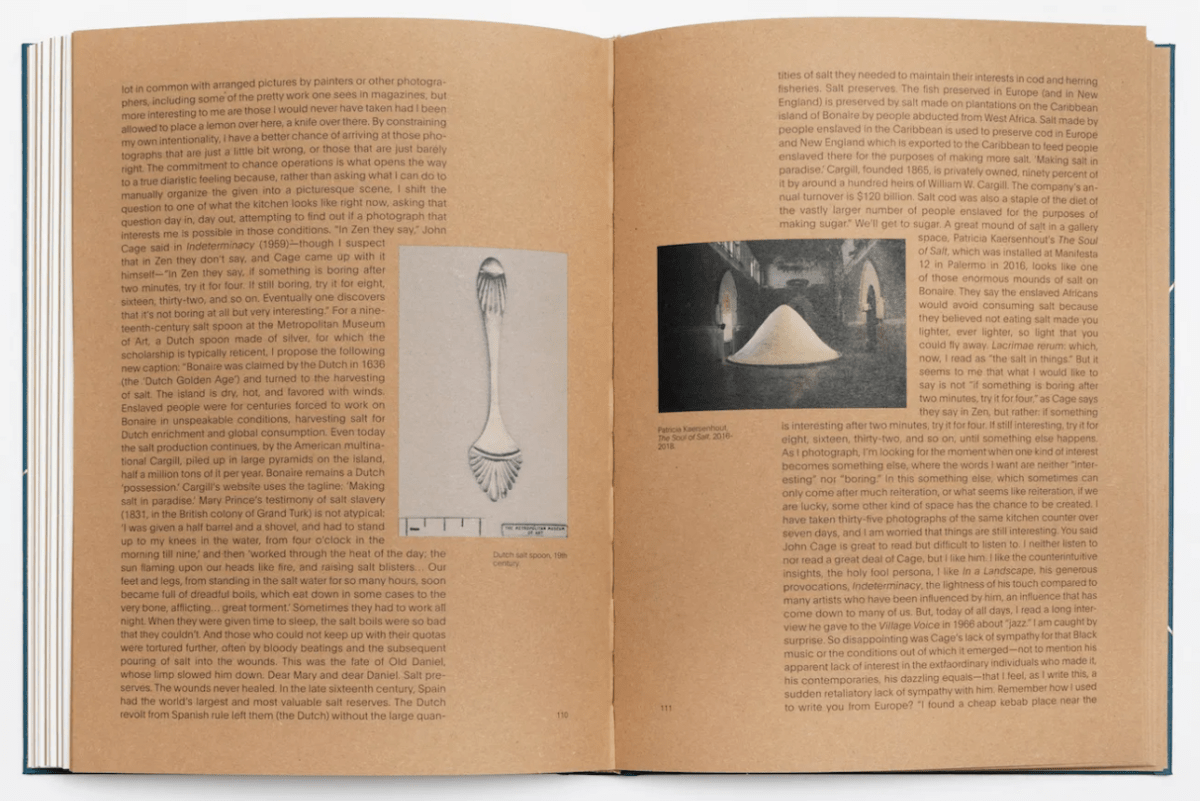
Book spread ‘Golden Apple of the Sun’ © Teju Cole
::
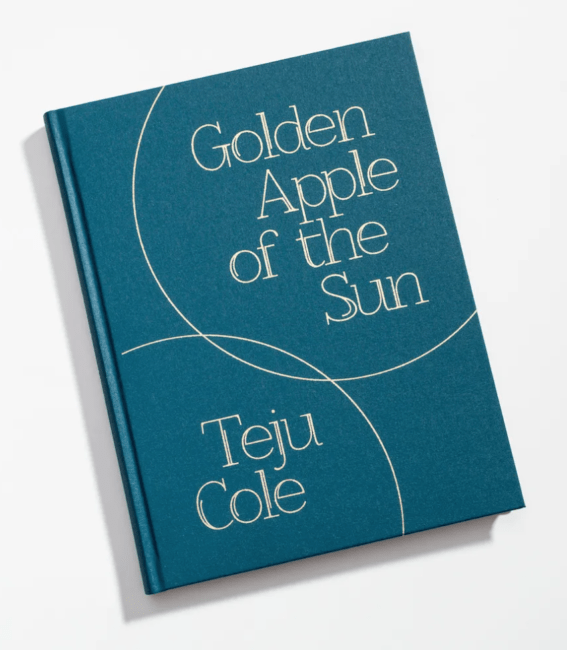
Golden Apple of the Sun by Teju Cole
Embossed hardback
19.3 x 25.3 cm, 136 pages
July 2021
Published by MACK
Teju Cole is a novelist, photographer, critic, curator, and the author of several books. Cole was born in the US in 1975 to Nigerian parents and was raised in Lagos. He currently lives in Cambridge, MA. He was the photography critic of the New York Times Magazine from 2015 until 2019. He is currently the Gore Vidal Professor of the Practice of Creative Writing at Harvard. Teju Cole has contributed to the New York Times, the New Yorker, Granta, Brick, and many other magazines. His photography column at the New York Times Magazine, “On Photography,” was a finalist for a 2016 National Magazine Award.
Location: Online Type: Book Review
Events by Location
Post Categories
Tags
- Abstract
- Alternative process
- Architecture
- Artist Talk
- artistic residency
- Biennial
- Black and White
- Book Fair
- Car culture
- Charity
- Childhood
- Children
- Cities
- Collaboration
- Community
- Cyanotype
- Documentary
- Environment
- Event
- Exhibition
- Faith
- Family
- Fashion
- Festival
- Film Review
- Food
- Friendship
- FStop20th
- Gender
- Gun Culture
- Habitat
- Hom
- home
- journal
- Landscapes
- Lecture
- Love
- Masculinity
- Mental Health
- Migration
- Museums
- Music
- Nature
- Night
- nuclear
- p
- photographic residency
- Photomontage
- Plants
- Podcast
- Portraits
- Prairies
- Religion
- River
- Still Life
- Street Photography
- Tourism
- UFO
- Water
- Zine

Leave a Reply